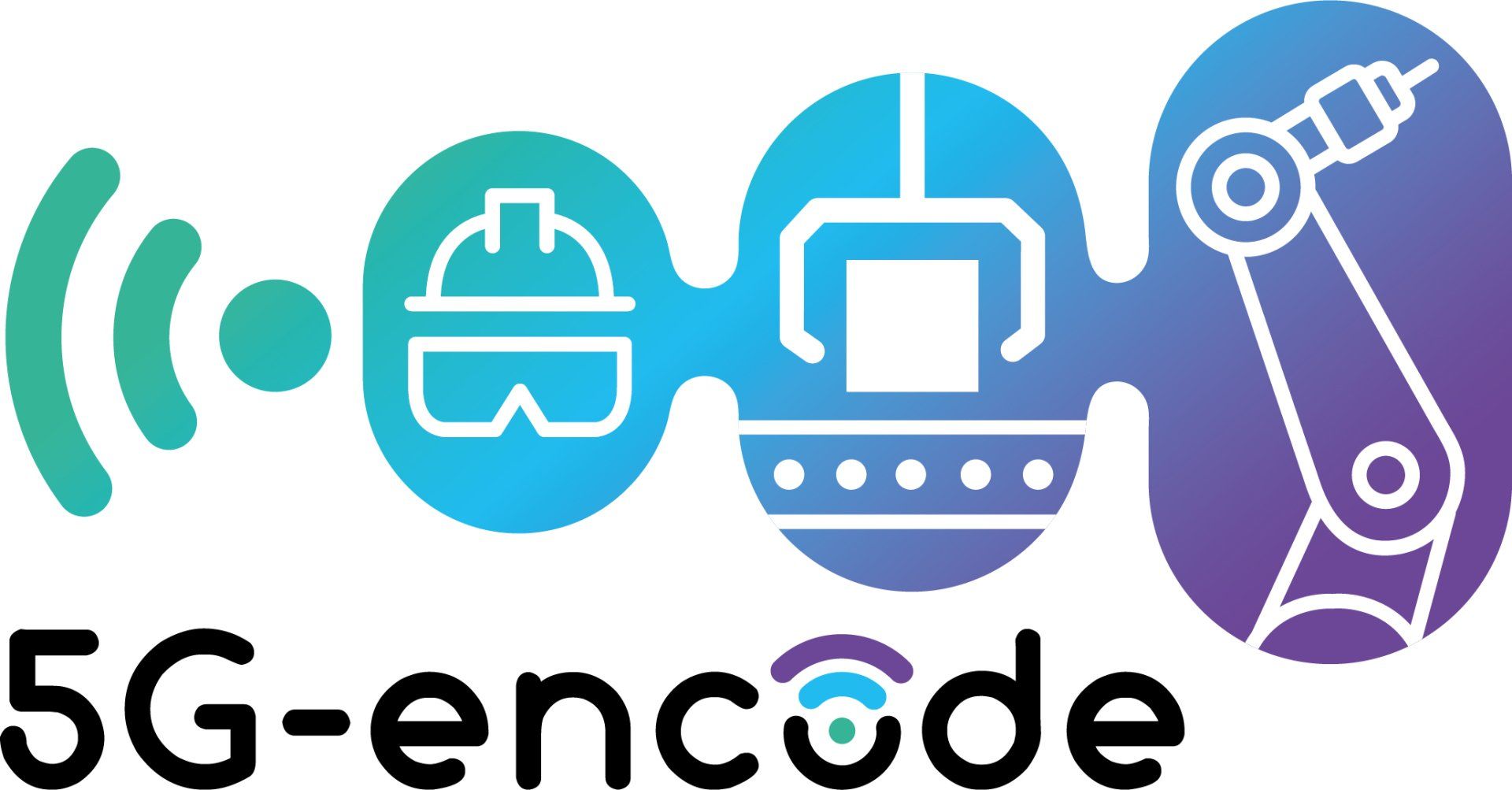
Government-backed 5G-ENCODE ‘slices’ industrial 5G network in world first
5G-ENCODE switches on the second phase of its network at the National Composites Centre moving a step closer to realising the commercial benefits of 5G in manufacturing.
London, 2 September 2021: Today, 5G-ENCODE, a pioneering project that aims to make the benefits of 5G a reality for UK manufacturers, announces the switch on of the second phase of its industrial private 5G network. This follows the success of phase one of the network, which launched at the National Composites Centre (NCC) late last year.
5G-ENCODE aims to prove the commercial benefit of 5G technology to enable three specific industrial use cases: augmented reality and virtual reality to support design, manufacturing and training; monitoring and tracking time sensitive assets; and wireless real-time in-process monitoring and analytics.
The first phase of the industrial private network, using 4G, was used to establish a baseline for existing cellular technologies, against which results from the private 5G network can be benchmarked. The results of phase one will be revealed at a phase two launch event at the NCC in November 2021.
Key to the success of 5G-ENCODE’s use cases has been the deployment of network slicing and splicing technology developed by leading 5G-ENCODE consortium partner Zeetta Networks. Within any manufacturing environment there are multiple tools and machines all requiring different levels of connectivity with varying degrees of latency and throughput. Slicing and splicing technology enables operators to create multiple virtual networks that can be customised according to specific services and traffic levels needed. The network can therefore be optimised to meet the needs of different processes to improve efficiency, performance and business output.
The technology enables seamless delivery of applications across a number of separate private 5G, 4G or Wi-Fi domains that communicate via a public 5G or other transport networks. Through Zeetta Networks’ multi-domain orchestrator platform, engineers can automate the splicing and dicing of the network resources, to provide users and machines with the exact level of connectivity to optimise performance at any time. Any leftover capacity can be directed elsewhere, making the factory far more efficient and productive.
As part of the phase two network deployment, Zeetta and partners have created a new network slice by stitching together slices from one transport network and two separate private networks: one located at NCC HQ and the other at another facility at NCCI located several miles away from the first location.
Vassilis Seferidis, Founder and CEO, Zeetta Networks, says: “For the first time in the world, an industrial 5G network can not only be customised and divided into multiple logical networks, but each of those virtual networks can be extended across a transport network to reach another virtual network in a completely different administrative domain. Zeetta’s technology enables the ‘stitching’ of the individual network slices to create a new network slice through an easy-to-use-graphical user interface. This ‘end-to-end’ slice delivers continuous connectivity for the seamless delivery of applications across different network domains regardless of vendor or technology. This would allow, for example, a critical asset to be tracked continuously in real-time and with the same quality-of-service as it is transported from the point of production, to being received at the destination location.”
Liam Kenny, Founder and CEO, Druid Software, says: “Zeetta Networks is an ideal lead partner for Druid Software’s Raemis™ 5G core. The Raemis™ Enterprise Slicing capabilities are one of the key features helping Zeetta deliver the required latency and throughput for Industry 4.0 applications at the 5G Encode project. Raemis™ allows for the easy creation of individual dedicated networks enabling separated QoS (Quality of Service) and security for specific groups of users. The 5G RAN the Raemis™ core drives in this environment only enhances this capability, offering additional levels of separation for QoS and security. The Raemis™ 5G Enterprise slicing feature also offers enhanced throughput and lowest possible latency (URLLC), all with the same easy to use interface. We provided an easy and simple license upgrade path from 4G to 5G.”
“Airspan is proud to once again play a key role in another wireless network first, collaborating on this innovative 5G-ENCODE project as the exclusive Open RAN provider,” said Giuseppe Bernini, VP of Sales in Europe for Airspan. “The use of our Air Velocity 2700 indoor solution, Central Unit (CU), and Distributed Unit (DU), along with our Open RAN software platform, provides the end-to-end Open RAN architecture needed to test and uncover a series of innovative 5G use cases in manufacturing.”
Christoph Glingener, CTO, ADVA, comments: “Our collaboration with Zeetta Networks is driving network slicing forward and helping to deliver scalable, flexible 5G connectivity ready for the demands of industrial IoT. By working closely together on 5G-ENCODE, our teams have been able to propel the technology towards full commercial deployment for the smart manufacturing of tomorrow. Our precise network timing capabilities and innovation in programmable demarcation and edge compute have been important to the success of this project. The design we created provides a transport and synchronization solution that ensures optimal performance and supports maximum resource utilization. It opens the door to massive sensor applications and huge new efficiencies in manufacturing processes.”
Dimitra Simeonidou, Director of Smart Internet Lab, University of Bristol, says: “In this project for the first time we have shown how a public and open 5G test-bed developed by University of Bristol can be seamlessly connected to a private industrial 5G network enabling next generation industrial 5G use cases and applications such as interactive real time remote training and critical asset tracking. This is achieved with a next generation low latency edge computing platform and a novel 5G brokering mechanism developed by the Smart Internet Lab controlled and orchestrated by Zeetta’s orchestrion planform.”
Based on open standards, the homegrown British software is compatible with O-RAN (Open Radio Access Networks) and other open networking technologies, making it both technology and vendor agnostic. This directly supports the UK government’s 5G Supply Chain Diversification Strategy, which advocates deployment models based on open interfaces and interoperable standards for the Telecoms industry.
About 5G-ENCODE
5G-ENCODE is a £9 million collaborative project aiming to develop clear business cases and value propositions for 5G applications in manufacturing. The project is partially funded by the Department for Digital, Culture, Media and Sport of the UK Government as part of its 5G Testbeds and Trials Programme. It is run by a consortium of leading organisations led
by Zeetta Networks including National Composites Centre, Mativision, Plataine, Solvay, Toshiba, Telefonica, Siemens, Accedian and the University of Bristol’s Smart Internet Lab.
Deployment partners Druid Software and Airspan provide key technology components.
About Zeetta Networks
Zeetta Networks is a leader in the development of software solutions to enable programmable, open ICT network infrastructures, made possible by the network slicing and network splicing® capabilities of NetOS®. With NetOS® at the heart of their network, an operator or enterprise can monitor and automate the management of their infrastructure and the services they offer their users from a single console, in real time and on demand.
About Druid Software
Druid Software is a core cellular network software company based in Ireland. Established in 2001 Druid has evolved into one of the world's leaders in Private 5G & 4G Cellular technology over the last 20 years. Druids RAEMIS™ platform is a mature 3GPP compliant 4G/5G core network, with unique features designed specifically for business and mission critical use. Druids mature RAEMIS™ platform is in use today by ISPs and Enterprises for mission critical environments in the U.S, Asia and Europe. Druid technology enables solutions in different areas including enterprise communications, IoT, mobile edge computing, and public safety. For more information, visit
https://www.druidsoftware.com.
About Airspan Networks
Airspan Networks Holdings Inc. (NYSE American: MIMO) is a U.S.-based provider of ground-breaking, disruptive software and hardware for 5G networks, and a pioneer in end-to-end Open RAN solutions that provide interoperability with other vendors. As a result of innovative technology and significant R&D investments to build and expand 5G solutions, Airspan believes it is well-positioned with 5G indoor and outdoor, Open RAN, private networks for enterprise customers and industrial use applications, fixed wireless access (FWA), and CBRS solutions to help mobile network operators of all sizes deploy their networks of the future, today. With over one million cells shipped to 1,000 customers in more than 100
countries, Airspan has global scale. For more information, visit
About ADVA
ADVA is a company founded on innovation and focused on helping our customers succeed. Our technology forms the building blocks of a shared digital future and empowers networks across the globe. We’re continually developing breakthrough hardware and software that leads the networking industry and creates new business opportunities. It’s these open connectivity solutions that enable our customers to deliver the cloud and mobile services that are vital to today’s society and for imagining new tomorrows. Together, we’re building a truly connected and sustainable future. For more information on how we can help you, please visit us at





